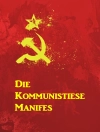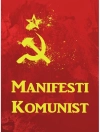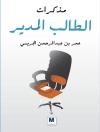Palladium-catalysed cross-coupling reactions constitute a powerful class of chemical methods for the creation of carbon-carbon and carbon-heteroatom bonds used in organic synthesis, famously recognized by the 2010 Nobel Prize awarded to Richard F. Heck, Ei-ichi Negishi and Akira Suzuki ‘for palladium-catalysed cross-couplings in organic synthesis.’ These methods have become ubiquitous in academic and industrial settings alike, as applications span from industrial production of pharmaceuticals, agrochemicals, polymers, and dyes to the synthesis of complex natural products.
New Trends in Cross-Coupling provides the reader with the history and basic, concepts of cross-coupling up to the state of the art in modern coupling reactions from both technology and applied perspectives. A wide breadth of topics including selecting prominent ligand types; advances in Pd-phosphine precatalysts and Pd N-heterocyclic carbene complexes; new reactions such as carboiodination; implementation of new technologies such as continuous flow and advanced metal detection methods; greener approaches to cross-coupling; as well as large-scale applications in the syntheses of pharmaceutical materials are covered.
Edited by Thomas J. Colacot, an Industrial expert on cross coupling, the book contains contributions from academic and industrial world leaders in the field as well as a Forewords from Professor Barry M. Trost, Gregory C. Fu and 2010 Nobel Laureate in Chemistry Professor Ei-ichi Negishi. New Trends in Cross-Coupling serves as a reference guide for both undergraduate and graduate students as well as those who are experts in the area.
‘…this compilation, a “Must” for anyone interested in learning and using newer trends in cross-coupling.’ Ei-ichi Negishi, 2010 Nobel Laureate in Chemistry
‘I am very pleased to see such a book concerning cross coupling reactions published.’ Professor Akira Suzuki – 2010 Nobel Laureate in Chemistry.
‘this book is invaluable to anyone involved in synthesis of organic compounds for any purpose.’ Professor Barry Trost, Stanford University.
表中的内容
Introduction to New Trends in Cross-Coupling;
Prominent Ligand Types in Modern Cross-Coupling Reactions;
Pd–Phosphine Precatalysts for Modern Cross-Coupling Reactions;
Advances in C–C and C–X Coupling Using Palladium–NHeterocyclic Carbene (Pd–NHC) Complexes;
Ancillary Ligand Design in the Development of Palladium Catalysts for Challenging Selective Monoarylation Reactions;
Transition Metal-Catalyzed Formation of C–O and C–S Bonds;
Pd(0)-Catalyzed Carboiodination: Early Developments and Recent Advances;
Boron Reagent Activation in Suzuki–Miyaura Coupling;
Modern Heck Reactions;
Palladium-Catalysed Carbonylative Coupling and C–H Activation;
Stereospecific and Stereoselective Suzuki–Miyaura Cross-Coupling Reactions;
Direct Arylation via C–H Activation;
Cross-Coupling Chemistry in Continuous Flow;
Greener Approaches to Cross-Coupling;
Recent Large-Scale Applications of Transition Metal-Catalyzed Couplings for the Synthesis of Pharmaceuticals;
Palladium Detection Techniques for Active Pharmaceutical Ingredients Prepared via Cross-Couplings;
关于作者
Dr. Thomas John Colacot was born in Central Kerala, India. After finishing his Ph.D in Chemistry from IIT Madras with Prof. M.N.S. Rao in 1989, he moved to the University of Alabama at Birmingham for a combined teaching and post-doctoral research position in the area of Group III-V Chemistry with Prof. L. K. Krannich. In 1992, he became an Asst. Professor at Florida A & M University, while collaborating with Prof. Will Rees at Florida State University. Due to family commitments, he moved to Southern Methodist University, Dallas in 1993 to work with Professor N.S. Hosmane. Although Prof. Hosmane and Dr. Colacot did not have any previous experience in catalysis, Dr. Hosmane gave him complete freedom to explore catalysis research using mixed carborane-cyclopentadiene complexes of early transition metals for the manufacture of plastics (poly olefins). In 1995, Dr. Colacot began his career at Johnson Matthey, USA directing the homogeneous catalysis research group. With an extensive background in ligand technology obtained during his time at IIT Chennai and UAB, in conjunction with his studies in catalysis from SMU, Dr. Colacot focused his research in the area of precious metal catalysis. Through his research, Dr. Colacot and his group have generated highly active, practical palladium based cross coupling catalysts for applications in pharmaceutical, fine chemicals and academic labs. Currently, Dr. Colacot is the R & D Global Manager in Homogeneous Catalysis. He has given numerous invited and plenary lectures in many international conferences and acts as an external Ph. D thesis examiner to IITs and universities. He has contributed several publications, patents, book chapters and reviews. He is a Fellow of the Royal Society of Chemistry and has obtained a MBA from Pennsylvania State University. In 2012 Dr Colacot received the Applied Catalysis Award from the Royal Society of Chemistry.












